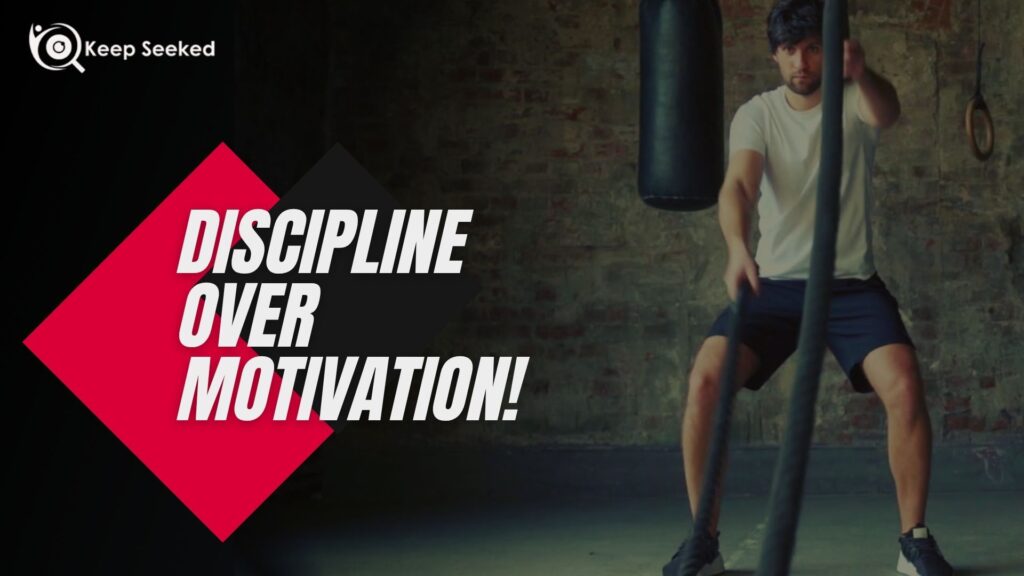Discipline Over Motivation! Some days you wake up full of energy. With coffee in your hand and music on, it feels like nothing can stop you.. That’s motivation.
Other days… you can barely convince yourself to get out of bed. And that’s where most people give up.
The folks who still show up? They’re running on discipline, not feelings.
Motivation vs.. Discipline is not the Same Thing..
Motivation is like a rush of energy.. It’s fun, exciting, makes you feel like starting something big. But it’s moody if you’re tired, stressed, or just not “in the zone,” it disappears.
Discipline is boring in comparison. It’s just… doing the thing. Rain or shine, good mood or bad mood. It’s the unglamorous part of success.
Why Motivation Doesn’t Stick Around
Motivation is emotional. It’s like sugar: quick energy, quick crash. You might start strong, but you won’t last long if you rely on it.
There are two kinds:
- External – rewards, praise, avoiding trouble.
- Internal – your own values and goals.
Both help at the start. Neither guarantees you’ll finish.
The Strength of Discipline
With discipline, you don’t ask yourself, “Do I feel like it today?” You just do it. That’s why it works it removes the debate.
It builds consistency. And consistency is where results actually come from.
When things get hard, motivation fades. Discipline doesn’t care. It shows up anyway.
The Brain Side of Things
It takes about two months for most habits to “stick.” The first part feels awkward and annoying. Discipline is what carries you through that stage until the habit becomes automatic.
It also changes how your brain deals with dopamine you stop chasing quick hits and start enjoying the big wins that take months (or years) to get.
The Myths People Believe
- “I need to feel inspired first.” No. Action first. Inspiration after.
- “I’ll start when the timing’s right.” If you wait for that, you’ll wait forever.
Who Proves Discipline Works?
- Athletes – They train even when they’d rather stay in bed.
- Entrepreneurs – They work through boring, frustrating, and slow days.
- Artists – They create even when they’re not feeling “creative.”
How to Build Discipline (Without Overcomplicating It)
- Start stupidly small – so small you can’t talk yourself out of it.
- Make rules for yourself – non-negotiables you stick to.
- Find someone to answer to – a friend, a coach, an app… anything.
Tools That Help
- Time blocking – literally schedule the work.
- Habit tracking – watch your streak grow.
- Rewards – bribe yourself if you have to.
Motivation + Discipline Together
Motivation is the spark. Discipline is the engine. The spark gets you moving. The engine keeps you going.
When You Mess Up
You will. Everyone does. The trick is to get back at it fast. No drama, no guilt trip just keep going.
Discipline Feels Restrictive (Until It Doesn’t)
At first, it feels like rules and limits. Later, you realize it’s actually freedom. Because now you control your time, not your mood.
Final Takeaway
Motivation is great for starting. Discipline is what will get you across the after finish line. You can Build it, stick to it, and you’ll thank yourself later.
FAQs
Nope. It fades too fast.
About two months, give or take.
Let motivation start the engine, then let discipline drive.



